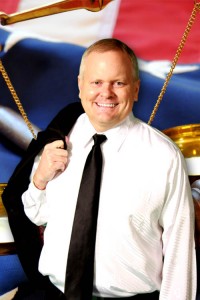A strong argument for a judicial appointment process over a judicial election process can be found in the recent stories regarding Kentucky lawyer Eric Conn and Supreme Court of Kentucky Justice Will T. Scott.
Regardless of the eventual outcome of investigations into the allegations of campaign financial solicitation, the damage has been done to the reputations of lawyers and the Kentucky legal system.
The power and authority of our judicial system and courts rides heavily upon public perceptions and confidence. Couple this with a lack of transparency and the inability of even a simple Open Records request for information, then you have a wound that is partially self-inflicted and in this times is most definitely not needed.
Stores abound of our Chief Justice citing the need for a better judicial retirement, better facilities, better support, better computers, and all with the goal of better service, better justice, and better judges at a time when many tax payers are worrying about jobs, health insurance, food on the table, and a roof over their heads.
Asking for more cents is not going to make sense to some.
If our judges and justices were appointed, they would not even be close to having to seek money for political office, and there would be no need for a sitting Supreme Court justice to need to give an explanation on a distinction between asking for money versus asking for help raising money which may satisfy few voters, few citizens, and few lawyers. As stated in the story below:
But Scott said he wasn’t asking anyone at the Conn law office for money — he simply wanted their help raising money, and that’s an important distinction.
Here is an extract of the Oct. 12, 2013 story by Lexington Herald Leader writer, John Cheves and available on-line (for the moment) at www.Kentucky.com.
By John Cheves — jcheves@herald-leader.com
In early 2012, Kentucky Supreme Court Justice Will T. Scott repeatedly drove to the Floyd County office of disability benefits lawyer Eric C. Conn, which is a chain of interconnected trailers along U.S. 23, fronted by a one-ton, 19-foot-tall statue of Abraham Lincoln.
Scott, who represents Eastern Kentucky on the high court, was on his way to raising $332,390 for a bruising re-election battle that fall. Conn was a multi-millionaire facing at least two federal investigations and a fraud lawsuit for allegedly rigging medical records and steering hundreds of his check-seeking clients to a judge who improperly approved their claims. A U.S. Senate committee spent five hours last week criticizing Conn’s law practice at a nationally televised hearing.
The men thought they could be useful to each other.
Scott put Conn on his campaign committee and talked with him and two other lawyers in Conn’s firm about money that they could raise for him, according to Scott himself and one of the other lawyers, David Hicks, who later spoke with investigators for the state attorney general’s office.
In an interview last week, Scott said Conn initially approached him, not vice versa.
“They kept calling me and asking me, ‘Please come by, we’d love to see you, we want to support you,'” Scott said. “I cannot turn my back on the people of Kentucky when I’m running for election.”
After that conversation, Conn gave Scott’s campaign $1,000, the maximum allowed by state law. So did one of Conn’s lawyers, John Earl Hunt.
Then Conn tried to funnel $10,000 more to the campaign through $1,000 money orders under the names of 10 of his office employees. Conn got the money from a safe-deposit box at a Prestonsburg bank where he kept about $250,000 in cash, one of his employees, who accompanied him, told investigators.
The payments were coordinated by Kia Hampton, Miss Kentucky USA 2011, Hampton told investigators. Conn had hired Hampton for $70,000 a year as his public relations director and leader of his “Conn Girls,” attractive young women who starred in his television commercials and public events.
“Mr. Will T. Scott, let me first say that (it) is an honor to be able to participate in your campaign,” Hampton emailed Scott on Jan. 6, 2012. “Us at the Eric C. Conn law firm are very excited. Looking forward to meeting you next week!”
“Thanks, Kia. I’m just Will T.,” Scott replied. “When I get over my sickness, tell Eric and John and all I’ll stop by for a chat. I’d be embarrassed to get around them with my cough now.”
Hampton told investigators that Scott came to Conn’s office and gave her a batch of campaign envelopes to be used for donations. (Hampton added that she didn’t know who Scott was, but she was instructed to help him.) Scott confirmed last week that he dropped off his campaign envelopes. They were pre-addressed to “Scott for Supreme Court” at the same post office box he lists as his Pikeville address on the court’s website.
The Kentucky Code of Judicial Conduct, approved by the Supreme Court, prohibits judges and judicial candidates from soliciting campaign funds in person. The court has argued that, more than most politicians, judges are in a unique position to pressure people who might appear before them — especially lawyers. Judges and judicial candidates must appoint committees to request money on their behalf, keeping an arm’s length between them and potential donors.
But Scott said he wasn’t asking anyone at the Conn law office for money — he simply wanted their help raising money, and that’s an important distinction.
“I don’t go up and ask people for money, and I don’t take money from people,” Scott said.
Scott soon returned the donations to the Conn office employees at their individual homes. He explained in his signed letters that he could not accept money orders, only personal checks, and he invited them to attend an upcoming Pikeville campaign reception that would raise $53,425 for him.


